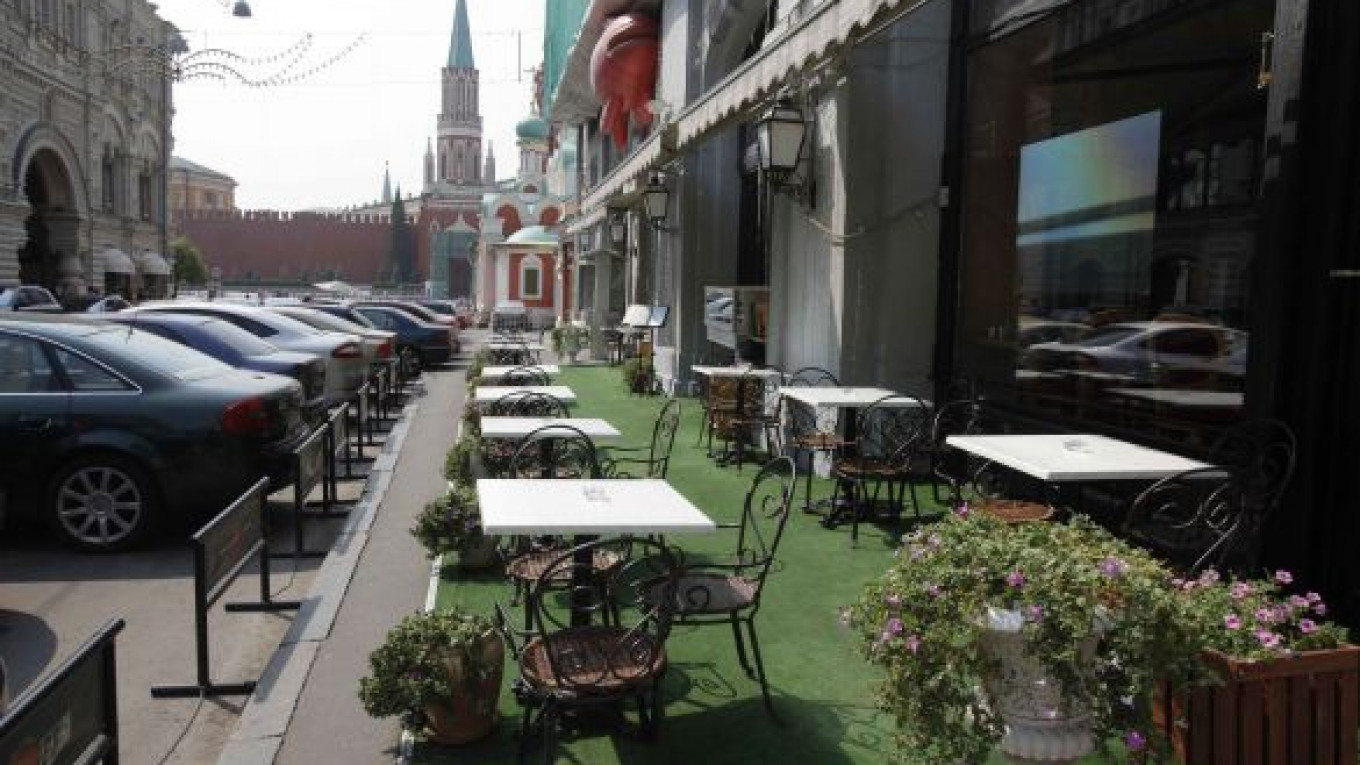The Economic Development Ministry has proposed a large-scale advertising campaign to help turn Moscow into an international financial center, including a dedicated Internet portal, work with Russian nationals abroad and more emphasis on "success stories."
Foreigners have a poor understanding of Russia, and what they do know is dated, according to the ministry's draft plan for improving Russia's brand on international financial markets, a copy of which was obtained by Vedomosti.
Russia's weak standing on investment climate, corruption and stability rankings only adds to the country's poor image, the document said.
According to the Global Financial Centers Index, Moscow currently ranks 68th — well behind leaders London, New York, Hong Kong and Singapore.
Targeted advertising campaigns in support of the international financial center — or MFTs, by its Russian acronym — could help add positive information to the overall picture, the ministry said. The project will use both world experience in branding as well as Soviet developments in the field of propaganda, it said.
The proposals are already being discussed with experts and analysts, said Dmitry Skripichnikov, acting head of the ministry's corporate governance department.
One of the main projects would be the creation of an Internet portal for the MFTs, where users could get information about Russia, as well as its investment and economic potential. Initially, the site will be in Russian, English, German and French, with an eventual expansion to include other languages of the BRIC countries, as well as Arabic.
The Economic Development Ministry also wants to include information about Russian financial services on the MFTs site. Another section would focus on "compatriots abroad," which would seek to build ties with Russian finance specialists living outside the country.
An informal group of people, including representatives of the state, business and science, will be recruited to promote the possibilities for business in Russia and the promise of investing here. Accomplishments should become associated with specific individuals and success stories, according to the ministry's plan.
The ministry proposed itself to coordinate the project and promised to partner with leading Russian publications — including Rossiiskaya Gazeta, Interfax, Biznes-FM radio and Expert magazine — to publish information about the good business climate in Russia. They would also seek to monitor stories about Russia in top foreign publications.
Skripichnikov said the ministry had not yet estimated what the program would cost. A campaign without using direct advertising that covers the major economies, such as those in the Group of Eight, typically costs several million dollars per year, said Yelena Fadeyeva, chief of communications agency Fleishman-Hillard Vanguard.
Providing information about Moscow as a business center will make the project more popular, said Yulianna Slashchyova, president of the agency Mikhailov & Partners. Seeking support from fellow Russians is also justified, she said.
"People who left the country in the past 10 to 15 years — unlike those who left the country before perestroika — aren't bitter. They'll be ready to help improve the country's image," she said.
For the international audience, it's important to show the transparency in Russia's decision making and that there's a dialog between business and the authorities, Fadeyeva said.
But direct contact, particularly through social networks, is also important, and that's still lacking in the ministry's program, she said.
The MFTs plan is targeting an audience of top executives and investors, who value direct communication over publications in the press, said Alexei Volin, a former deputy chief of staff for the government. The government should focus on holding forums and conferences, he said.
Denis Rodionov, managing director of Bright Minds Capital, said the project's goals should be realistic. Moscow is capable of becoming a regional financial center, particularly for former Soviet countries, but competing with global financial centers like New York and London is basically impossible, he said.
"Two conditions are needed for the MFTs: The stock market must rise and be of serious, fundamental interest for investors, and [investors] should have the ability to speak regularly with the regulator or the body responsible for creating the center," Gazprombank vice president Anatoly Milyukov told Vedomosti.
A Message from The Moscow Times:
Dear readers,
We are facing unprecedented challenges. Russia's Prosecutor General's Office has designated The Moscow Times as an "undesirable" organization, criminalizing our work and putting our staff at risk of prosecution. This follows our earlier unjust labeling as a "foreign agent."
These actions are direct attempts to silence independent journalism in Russia. The authorities claim our work "discredits the decisions of the Russian leadership." We see things differently: we strive to provide accurate, unbiased reporting on Russia.
We, the journalists of The Moscow Times, refuse to be silenced. But to continue our work, we need your help.
Your support, no matter how small, makes a world of difference. If you can, please support us monthly starting from just $2. It's quick to set up, and every contribution makes a significant impact.
By supporting The Moscow Times, you're defending open, independent journalism in the face of repression. Thank you for standing with us.
Remind me later.






